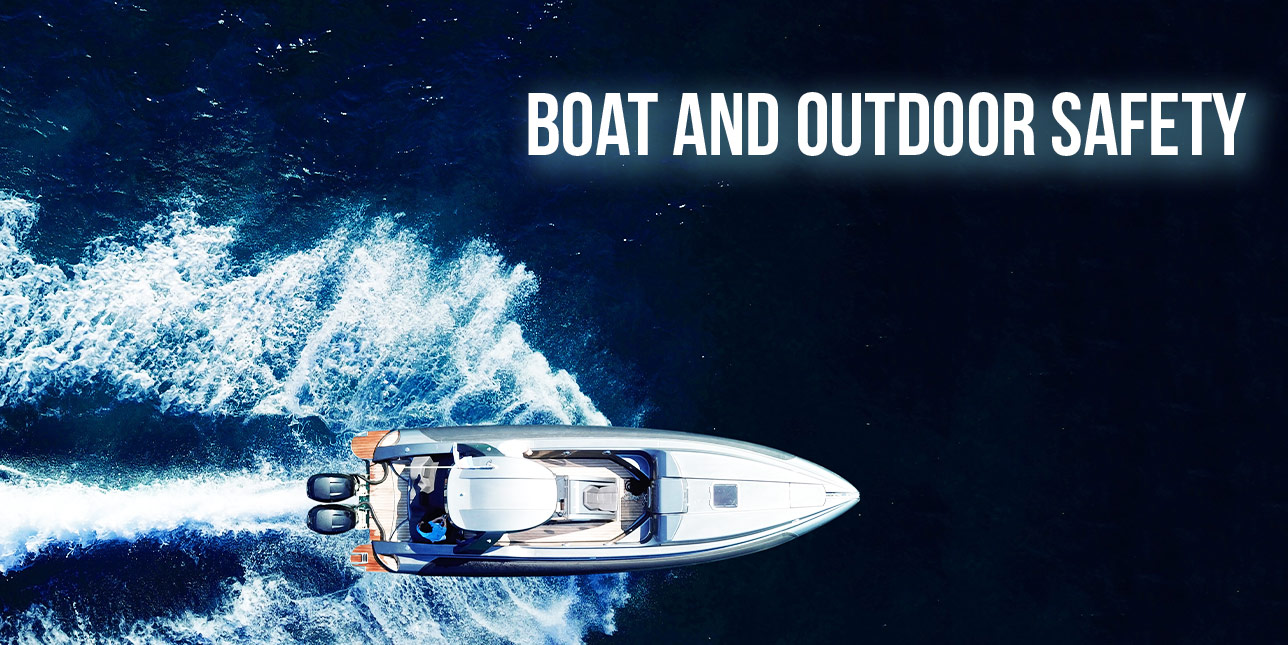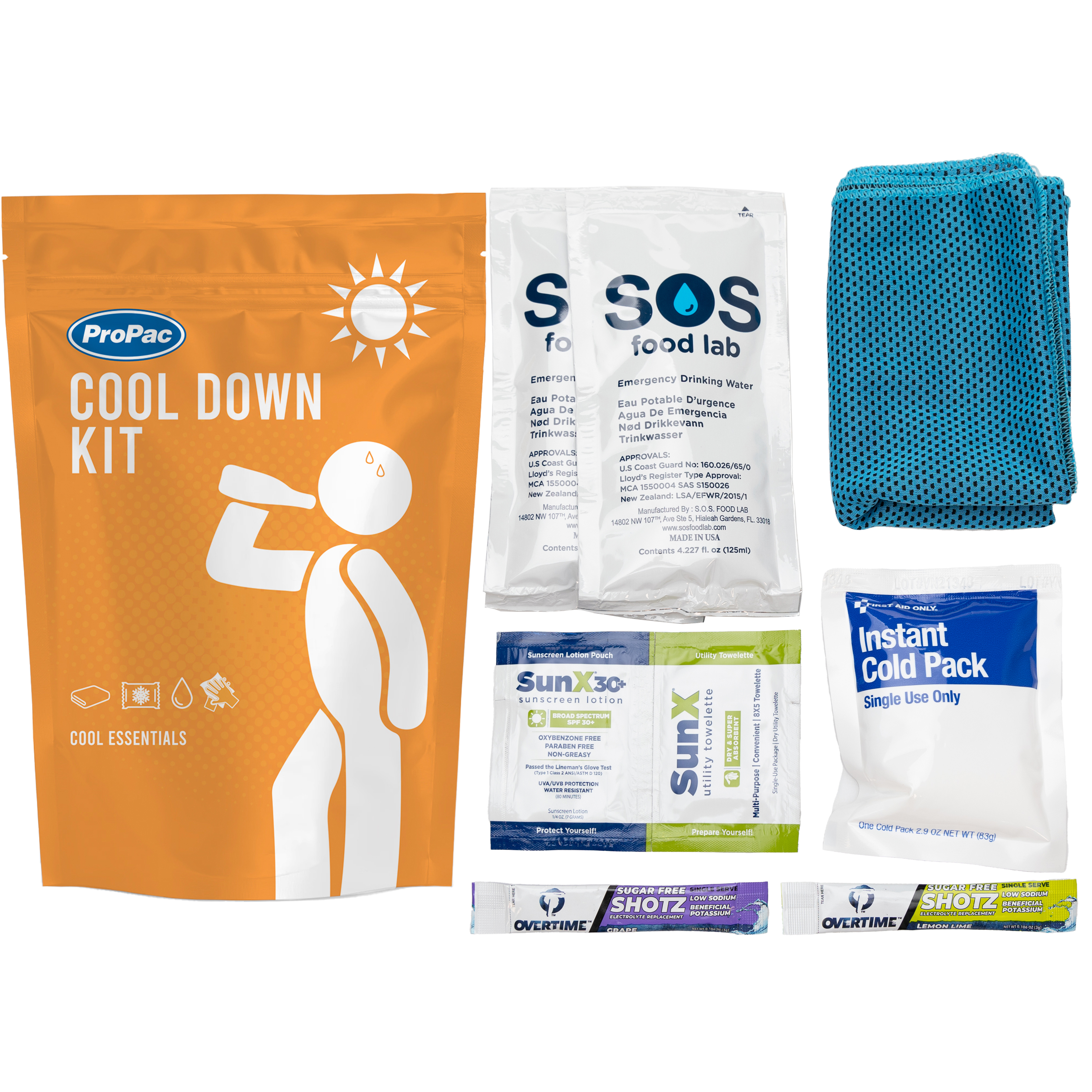
Boat and Outdoor Safety
Tuesday July 18, 2023
A Guide to Ensuring Safety Outside and on the Water
Summertime is perfect for being on a boat or engaging in outdoor activities. These sun-filled days can be exhilarating, all the while providing a much-needed escape from the daily routine. However, it's crucial to prioritize safety to ensure a positive experience for everyone involved. This article will provide you with valuable information and tips to enhance safety during boating adventures and other outdoor activities.
Boating Safety
1. Wear life jackets. Not only is it important to wear life jackets, but the life jackets should fit correctly. Even if passengers can swim, having enough life jackets at the ready is vital. The importance of wearing properly fitted life jackets cannot be overstated. If an incident does occur, having a Water Rescue Kit nearby is beneficial.

2. Know the rules and regulations. Make sure you know the local boating laws and regulations, like speed limits, navigational rules, and restricted areas. Following these rules can help prevent accidents, keeping everyone safe.
3. Check the weather conditions. Keep up to date with local weather forecasts. It’s important to look at the hourly forecast and local radar in case potential storms are heading your way. Boating or being in the water during inclement weather poses a great risk of accidents.
4. Maintain proper equipment. Before taking your boat out, inspect it. Practicing regular checkups and maintenance on your boat and equipment is a top priority for boat safety. Check on safety gear like fire extinguishers, flares, navigation lights, and communication devices often.
5. Avoid alcohol and drugs. Never operate a boat while under the influence of alcohol or drugs. Impairment can cloud judgment, disrupt coordination, and worsen response times, potentially leading to accidents.
6. Stay alert and be mindful of your surroundings. When operating a boat, please be mindful of your surroundings. Accidents can happen in the blink of an eye, so stay vigilant and hyperaware while out on the water. Look out for other boats and obstacles, like stumps and swimmers, that may be in the water. Just like driving an automobile, navigational maps are highly beneficial.
As for outdoor activities, being prepared and knowledgeable about the area you are in is a top safety step.
Outdoor Activity Safety
1. Plan and prepare. Whether it’s hiking, camping, or rock climbing, plan your trip thoroughly. Look into the area you plan on visiting to learn about local hazards. Also, let someone know what your plan is and when you are expected to return.
2. Dress appropriately. Always wear protective, appropriate clothing and footwear for the activity and weather conditions. Think about temperature, sun, insects, and terrain when preparing your outfits. A great hat with an extra-wide brim for protection is the CERT Bucket Hat! As for sunscreen and bug repellent, ProPac has you covered.
3. Carry essential supplies. Pack a backpack filled with essentials like water, food, a first aid kit, navigation tools, a whistle, a flashlight, a map, and a compass.
4. Know your limits. Although adrenaline rushes are normal, especially when participating in outdoor activities, know your limits. Be honest with yourself about your capabilities and experience levels. Don’t take unnecessary risks. If you do increase the difficulty of your outdoor activities, let it happen over time as you gain skills and knowledge.
5. Stay hydrated and nourished. No matter the heat or cold, humidity, or dry air, always stay hydrated and nourished by drinking plenty of water and eating nutritious snacks. By doing so, you maintain healthy energy levels that allow you to participate in those outdoor activities. Remember that dehydration and a lack of proper nutrition can impact decision-making and physical performance. Since heat stroke is a risk, especially in the summer, it’s always a safe bet to keep a Cool Down Kit or two nearby.

6. Respect wildlife and the environment. When experiencing the outdoors, remember, you are not the only one utilizing them. Whether that’s in relation to other people or the animals that live there full-time, respect those areas. Leave no trace of yourself and follow the principles of environmental conservation. Do not disturb or feed wildlife and dispose of waste properly. Preserve the natural beauty for future generations and yourself!
Safety is the top priority when participating in boating and outdoor activities. Following the steps above, combined with using common sense, can significantly reduce the risks associated with these activities. Remember, preparation, awareness, and responsible behavior make enjoyable outdoor experiences safer!